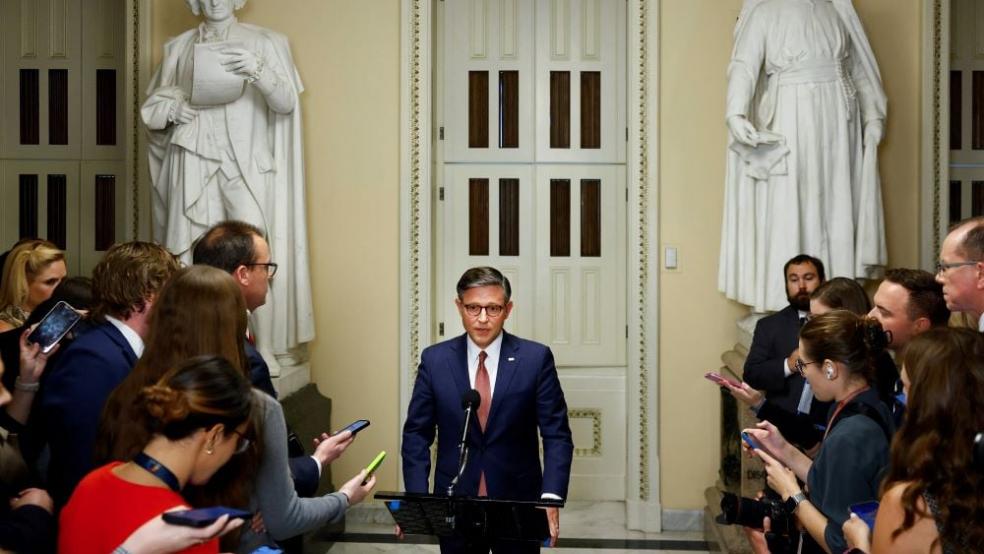Congress on Wednesday passed a stopgap bill funding the government through December 20, averting a shutdown of federal agencies at the end of the month.
The bill keeps most government spending at current levels and provides $231 million in additional funding for the embattled Secret Service, which faces increased scrutiny and demands for more resources after two assassination attempts against former President Donald Trump.
The package sailed through the House this afternoon under a suspension of the rules, a process that required a two-thirds majority. The 341-82 vote easily cleared that hurdle. All the “no” votes came from Republicans who bucked a bipartisan package put forth by House Speaker Mike Johnson.
The speaker, like former Speaker Kevin McCarthy before him, has repeatedly been forced to rely on Democrats to pass bills to keep the government funded because of internal GOP divisions. Many far-right Republicans continue to demand steeper spending cuts and oppose any stopgap funding measures.
“Governance by continuing resolution is not ideal,” House Appropriations Committee Chairman Tom Cole said before the vote in his chamber. “Like most, my preference would be to pass full-year appropriations bills through regular order, but we are out of time. We cannot afford a shutdown, which would be greatly damaging to our national security, to critical government programs, and to the American people. Not to mention the enormous cost of government shutdowns.”
The Senate then approved the bill by a 78-18 margin, sending it to President Joe Biden’s desk. Senators had earlier reached a bipartisan agreement to speed to a vote without any poison pill amendments.
“Americans can breathe easy that because both sides have chosen bipartisanship, Congress is getting the job done,” Senate Majority Leader Chuck Schumer said early in the day. “We will keep the government open. We will prevent vital government services from needlessly coming to a halt. We will give appropriators more time to fully fund the government before the end of the year. … There will be no shutdown because finally at the end of the day, our Republican colleagues in the House decided to work with us.”
Schumer said he hoped the constructive bipartisanship can continue when lawmakers return after the November elections, but as Aidan Quigley details at Roll Call, the two sides will enter the lame duck session with very different expectations regarding full-year government funding.
“House Republican leaders, outwardly confident about winning the White House, keeping the House and flipping the Senate, want to quickly wrap up in December by passing another stopgap bill into the new year,” Quigley writes. “Democratic leaders in both chambers, not to mention some GOP appropriators, prefer to finish up all the full-year spending bills, clearing the decks for the incoming administration rather than dumping a mess into the next Congress’ lap.”
The two sides will also have to resolve significant differences on spending levels and policy priorities, even as they’ll be dealing with a political landscape that could be dramatically altered by the elections.
What it means: Fiscal year 2025 won’t start on October 1 with a shutdown, but the path forward on full-year government funding could very well hinge on the outcome of the elections.
The White House has already detailed some funding needs that would need to be addressed when lawmakers return, including disaster relief, a $12 billion shortfall at the Department of Veterans Affairs and money for the Social Security Administration. The White House also said it would “oppose any cuts or restrictions on the IRS in final appropriations legislation which would limit the IRS’s ability to crack down on wealthy tax cheats, and increase the deficit.”





